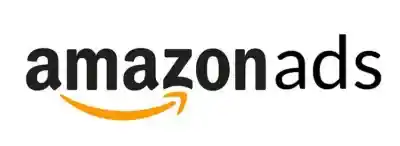Programmatic Guaranteed vs. PMP
Deciding between Programmatic Guaranteed and PMP (Private Marketplace) deals? Programmatic advertising has revolutionized digital advertising by using advanced technology and data to streamline the buying and selling of digital ad space. Unlike traditional methods, programmatic buying enables advertisers to target audiences more effectively and distribute ads on a large scale.
In this article, we’ll break down the differences between Programmatic Guaranteed and PMP, helping you make an informed decision for your campaign.
Key Takeaways
- Programmatic Guaranteed deals involve fixed agreements between advertisers and publishers, ensuring specific ad placements and predictable outcomes, while PMP deals provide access to premium inventory through a competitive bidding process without guaranteed placements.
- Both methods use first-party data for audience targeting, but they differ in flexibility, setup time, and costs.
- Advertisers must consider their campaign goals, budget, and desired level of control when choosing between Programmatic Guaranteed and PMP deals to maximize campaign effectiveness.
Programmatic Guaranteed vs. PMP: A Comparison
Programmatic Guaranteed involves direct agreements between advertisers and publishers, securing premium ad placements at fixed prices. This approach guarantees specific impressions, providing transparency and stability for campaigns.
PMP deals, on the other hand, offer access to high-quality inventory through competitive bidding but without guaranteed placements. While PMP allows flexibility, it can take more time for approvals and comes with less certainty about ad inventory.
Both methods are effective for reaching audiences in brand-safe environments, but each has its pros and cons. Understanding these differences helps advertisers make informed decisions based on their campaign goals and needs.
Understanding Programmatic Advertising Deals
Programmatic advertising automates the buying and selling of digital ad space, using technology and real-time bidding. It enhances efficiency in media buying by minimizing manual input and harnessing real-time bidding to optimize ad placement.
Programmatic Guaranteed involves direct negotiations between advertisers and publishers, securing ad inventory at a set price. This ensures ads will be displayed in predetermined locations and guarantees specific impressions.
PMP deals allow advertisers to bid on premium inventory in a private, exclusive environment. While inventory is not guaranteed, advertisers can still access high-quality placements not available in open auctions.
Both methods use data for precise audience targeting and can complement each other in a campaign.
What is Programmatic Guaranteed?
Programmatic Guaranteed deals provide advertisers with secure inventory at a fixed price, offering a reliable method for brand promotions. These agreements are made directly between advertisers and publishers, where they mutually decide on the cost and the exact number of impressions needed, bypassing the auction process entirely. This approach, often referred to as “guaranteed buys,” streamlines the procurement process and minimizes the need for manual intervention by leveraging automation.
In this arrangement, advertisers form direct partnerships with publishers to negotiate terms such as pricing structures. They also confirm that the desired inventory is available through ad exchanges connected to their Demand Side Platform (DSP). This automated selling method helps eliminate mismatches and reduces ancillary costs, ultimately boosting the efficiency and effectiveness of advertising campaigns.
Benefits of Programmatic Guaranteed
Programmatic Guaranteed deals offer significant advantages for both advertisers and publishers. These arrangements grant access to premium ad placements, enhance audience targeting capabilities, allow for frequency capping to limit ad exposure, and provide guaranteed pricing structures. Advertisers enjoy transparent costs through predefined rates established with publishers, protecting them from unexpected expenses. This level of control ultimately boosts campaign performance and contributes to a stronger return on investment.
For publishers with a strong brand presence, Programmatic Guaranteed deals are particularly beneficial, enabling them to provide high-quality inventory that appeals directly to targeted consumer segments. This symbiotic relationship fosters an advertising ecosystem marked by stability and trust, making Programmatic Guaranteed a preferred choice for many brands looking for effective marketing solutions.
Drawbacks of Programmatic Guaranteed
Despite their advantages, Programmatic Guaranteed deals have notable limitations. The lack of flexibility to adjust campaigns in real time can hinder advertisers’ ability to respond quickly to changing market conditions. Additionally, there may be constraints on targeting options within these arrangements, potentially affecting the overall success of campaigns.
These programmatic transactions often require extended preparation periods before going live, which can delay the start of advertising initiatives. Advertisers must weigh these potential drawbacks against the benefits of Programmatic Guaranteed deals to determine whether this approach aligns with their marketing goals.
What is a Private Marketplace (PMP)?
A Private Marketplace (PMP) is a specialized method for purchasing media that allows select advertisers to access premium inventory through exclusive private auctions. Unlike open auction markets, PMP deals operate on an invitation-only basis, providing a curated ad placement experience. This exclusivity enables publishers to offer their best inventory only to advertisers who meet specific criteria.
In PMPs, multiple advertisers can participate in these exclusive arrangements, but access is limited to those chosen by the publishers. Setting up PMP agreements typically involves a manual process, requiring communication through email and the use of Supply Side Platforms (SSPs).
The terms set forth by publishers within these special marketplace engagements dictate specifics like pricing structures, targeted demographics, device preferences, type and timing of placements, all designed with exclusivity in mind so that there’s greater control over where advertisements appear.
Benefits of PMP Deals
Advertisers gain a notable advantage in ad placements through PMP deals by obtaining exclusive entry to premium inventory, which enriches the efficacy of their campaigns. The heightened level of transparency that comes with these deals allows for improved oversight over where ads are shown and the extent of audience engagement. Through targeted selection and private invitations, advertisers are granted priority access to engage with specific demographics within private auctions.
Compared to open exchanges, PMP deals offer advertisers the opportunity to acquire high-quality ads while minimizing the risk of encountering fraud. This combination of premium inventory access and enhanced transparency makes PMP deals an appealing option for brands aiming to optimize their advertising strategies.
Drawbacks of PMP Deals
While PMP deals come with distinct advantages, they also present notable drawbacks. A primary concern is their limited scalability, which can hinder broader audience engagement and restrict growth potential in advertising campaigns.
Additionally, establishing PMP deals typically requires substantial manual effort and negotiation, making the process less efficient compared to other advertising methods. This combination of limited scalability and increased negotiation demands may reduce the overall utility of PMP deals for some advertisers.
Comparing Programmatic Guaranteed vs PMP
Deciding whether to utilize Programmatic Guaranteed or PMP (Private Marketplace) deals hinges upon various considerations such as the advertiser’s financial constraints, specific target audience, and desired outcomes of the campaign. Each approach offers distinct advantages that align with different requirements: Programmatic Guaranteed delivers a sense of control and assurance in your buys, whereas PMP deals afford agility and an opportunity to procure premium inventory.
Understanding the subtle nuances and key differences between these options is essential for advertisers to determine which strategy best aligns with their objectives.
Key Differences
Programmatic Guaranteed involves a direct transaction between the advertiser and publisher, securing specific ad placements at predetermined fixed rates. This approach enhances transparency and reliability for both parties.
In contrast, PMP deals do not guarantee access to specific inventory and often include multiple participants during the purchasing process. Advertisers engaging in Programmatic Guaranteed transactions for premium inventory may face higher costs compared to those associated with PMP deals.
Similarities
Both Programmatic Guaranteed and PMP deals leverage robust data insights to enhance audience targeting. They utilize first-party data to identify specific audiences and provide access to high-quality inventory through ad exchange platforms, streamlining the transaction process for improved efficiency.
How to Choose Between Programmatic Guaranteed and PMP
When selecting between Programmatic Guaranteed and PMP deals, advertisers should consider their campaign objectives, budget constraints, and desired level of control. Programmatic Guaranteed agreements allow advertisers to secure a predetermined number of ad impressions, enhancing campaign effectiveness with a higher degree of predictability compared to PMPs, which focus on access to exclusive inventory.
Advertisers need to clarify their priorities: whether they aim to secure guaranteed ad impressions or prefer acquiring specialized inventory through negotiated rates. Understanding the differences in audience targeting capabilities between these options can play a crucial role in the decision-making process.
Additionally, it’s essential for advertisers to evaluate the setup times required for their campaigns. Generally, Programmatic Guaranteed deals have longer lead times than PMP arrangements, which may impact the overall timeline for launching advertising initiatives.
Steps to Set Up a Programmatic Guaranteed Deal
Initiating a Programmatic Guaranteed deal requires first establishing your campaign objectives and selecting the right publishers. Commence negotiations by submitting proposals that outline key campaign aspects such as inventory availability and cost. It’s crucial to ensure that audience targeting is consistent with what is proposed to prevent any discrepancies during the negotiation process.
Upon coming to an agreement, proceed to set up the deal by allocating creatives and defining essential parameters for its execution. After finalizing the Programmatic Guaranteed agreement, consistently track performance against your predetermined goals to guarantee successful outcomes.
Steps to Set Up a PMP Deal
To initiate a PMP (Private Marketplace) deal, begin by activating geographic targeting to define the desired audience location. Then allocate the PMP deal to selected zones in order to facilitate targeted ad placements.
During the creation of the PMP, a Deal ID will be generated. Distribute this Deal ID to your demand partner so they can gain access.
Summary
To summarize, Programmatic Guaranteed and PMP deals each present distinct advantages tailored to various advertising requirements. Programmatic Guaranteed delivers certainty and command over ad campaigns, whereas PMP (Private Marketplace) grants adaptability along with privileged entry to select inventory. Advertisers, by comprehending the strengths and limitations of these alternatives, are empowered to optimize their ad spend for attaining campaign goals effectively. Employing the appropriate strategy within programmatic advertising can markedly improve your digital marketing results.











